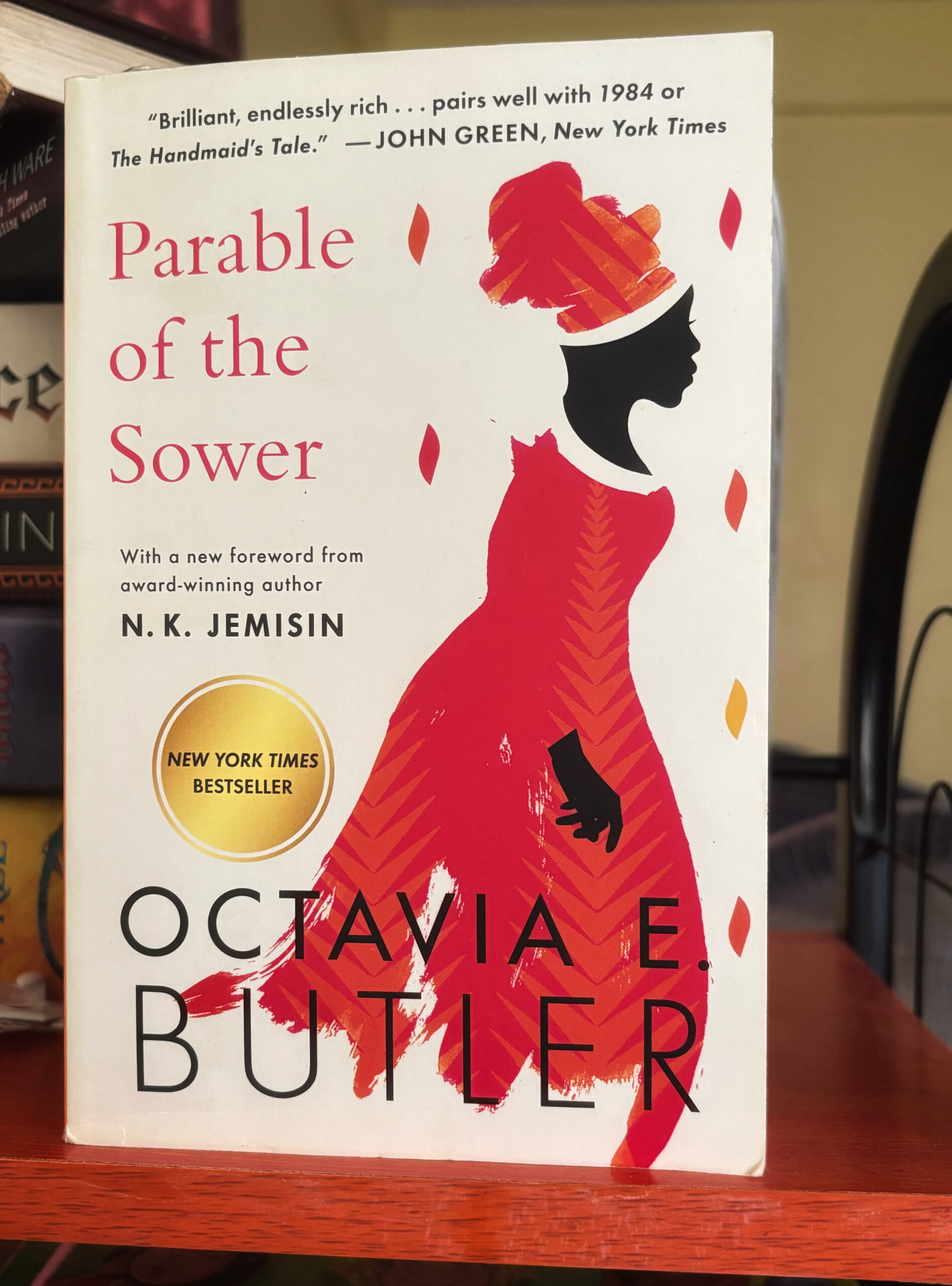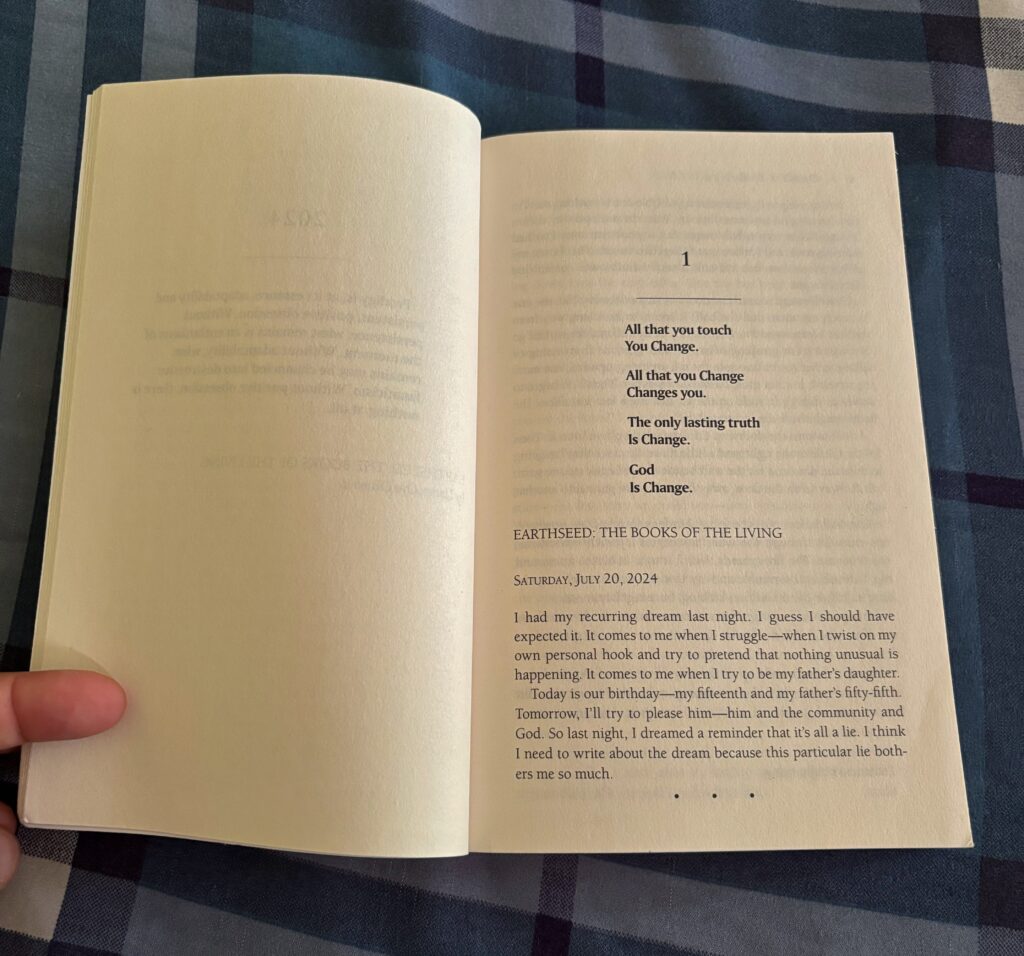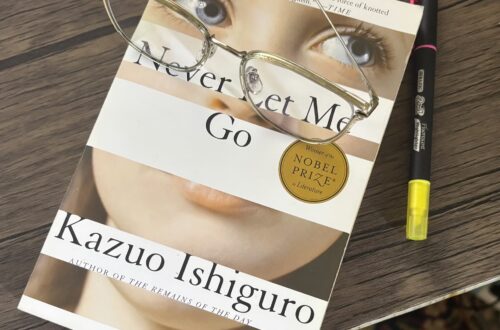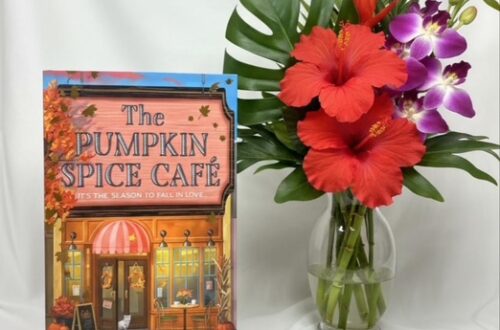
Reading Parable of the Sower in 2025: Honest Thoughts
I just finished Parable of the Sower, and honestly, I’m still thinking about it. It’s one of those books that creeps into your thoughts and refuses to leave. I remember having to pause and remind myself that Butler wrote this in 1993, not last year. I rated this book ★★★★★ (5/5) stars, because it is one of those books that will stay with me for a while and I love that.
“All that you touch You Change. All that you Change Changes you. The only lasting truth is Change.”
— Octavia E. Butler, Parable of the Sower
The story “The Parable of the Sower” is set in 2025, and the world feels like it’s falling apart. America’s economy has collapsed, water is expensive, private companies are running things, and everyday people are just trying to survive. We follow the narrator, Lauren Olamina, a 15-year-old girl who lives in a walled-off neighborhood near Los Angeles. She suffers from something called hyper-empathy, which is and illness that causes her to physically feel other people’s pain and pleasure and this makes living in such a brutal world even harder.


Reading this in 2025 felt eerie. So much of what Butler imagined feels so real doesn’t feel that far off. Climate change, water scarcity, inequality, violence, political chaos, these are all things that we hear about and can possibly get to the levels that we see described in this book. And though I live in the Caribbean and the story is set in the United States, a lot of it still hit close to home. We already know what it’s like to worry about water during the dry season. We know what rising seas and storms feel like. For us, climate change isn’t abstract.
I found Lauren to be a fascinating main character. She’s not your typical teenage hero. She’s practical, sometimes cold, and focused on surviving. But her empathy, both literal and physical makes her vulnerable in a way that feels so real. It’s not just a character quirk; it shapes how she moves through the world. What I loved is how Butler turns that into both a strength and a curse. It’s part of what makes Lauren so compelling.
A big part of the book is as well is the fact that Lauren developing her own belief system which she calls Earthseed. The central idea is that God is Change—that change is the only constant, and we need to shape it. I think that Butler carries this religion through the story well, it does not come across preachy, in fact I found it to be practical. It’s more like watching someone try to find meaning in a collapsing world. And that search felt relatable.
Butler’s writing style is simple and clear. The book is written like a journal, so you really feel like you’re inside Lauren’s head, watching her make sense of things as they happen. The pacing is slow at first but builds as she leaves the safety of her community and hits the road. Some characters don’t stick around long, but maybe that’s the point, because if you think about it, in a world like that, not everyone would.
What I liked most is that Parable of the Sower is that it pushes you to think and asks hard questions: How do we survive when the world falls apart? What does it mean to stay human when everything is broken? And what happens when even community and faith aren’t enough? Though wrote this book, what feels like so long ago, she was still able to write it in such a way that still feels urgent and necessary. For me, it wasn’t just a good read it was a wake-up call.
If you’re curious about how I choose books like this, visit my About page to learn more.
You can find Parable of the Sower here on Amazon or at your local bookstore.
This post contains affiliate links. If you buy through them, I may earn a small commission at no extra cost to you.




